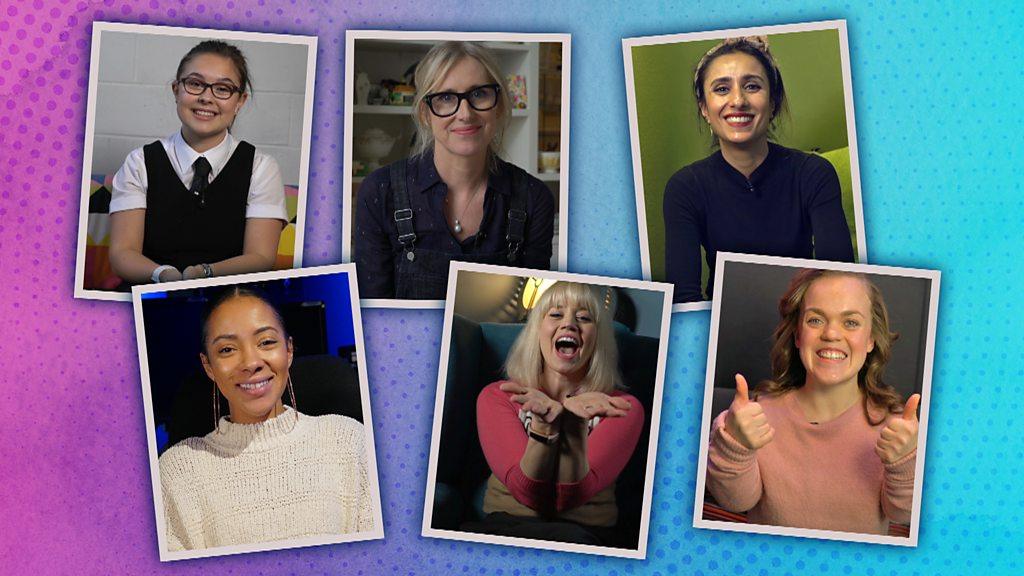International Women's Day: Why aren't there more women in Parliament?
- Published
- comments
International Women's Day: Should there be more women MPs?
"Could I be prime minister?" - that's what 11-year-old Lucia from Liverpool wants to know.
For International Women's Day she went to the House of Commons to speak to some of the women who represent us there.
Many of the UK's laws are decided by Members of Parliament (MPs) in the House of Commons - there are currently 650 of them, but only 220 MPs are women - that's just over a third.
Although this is the most female MPs there has ever been in the House of Commons, a lot of people think it's not enough and there should be a much more equal number of women and men representing people.
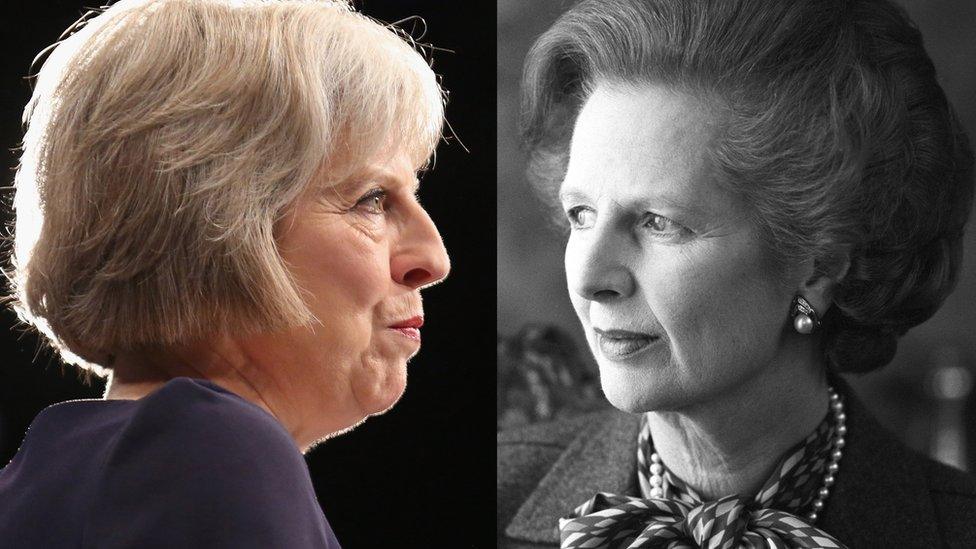
Theresa May (left) and Margaret Thatcher (right) are the only women Prime Ministers in the UK
Lucia, 11, from Liverpool, definitely thinks there should be more women, and says it's shocking that there have only been two female prime ministers in charge of the country.
Women were only able to stand for Parliament in 1918 and the first woman to be elected was Nancy Astor in 1919.
It wasn't until 1979 that the UK had its first female prime minister, Margaret Thatcher.
Out of the 19 prime ministers (some of whom were elected twice!) who have been in power since 1918, through 28 elections, just two have been women, Margaret Thatcher in 1979 and Theresa May in 2016.
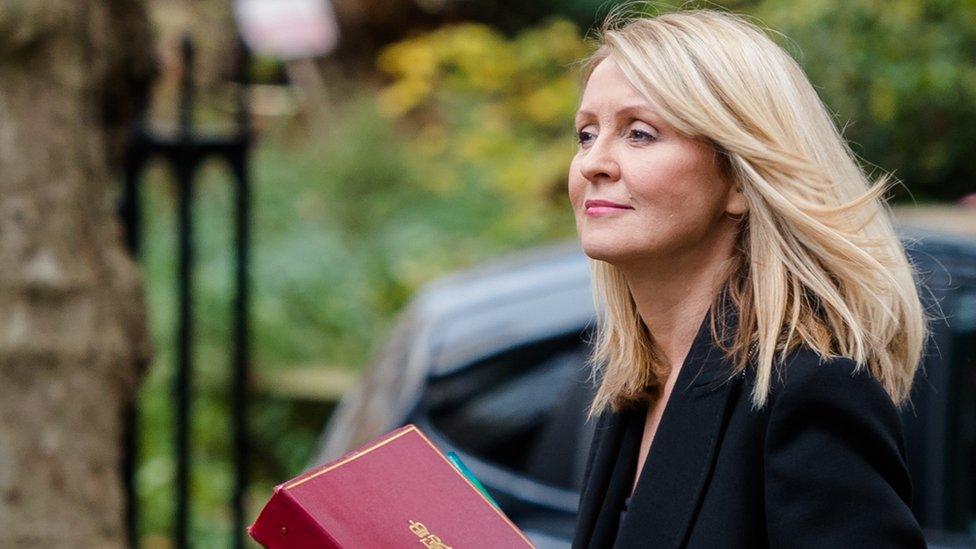
Esther McVey was part of Theresa May's top team of ministers but was beaten to the job of prime minister by Boris Johnson
Does it matter?
For Newsround, Lucia spoke to two MPs about the issue - Labour's Rupa Huq and Conservative MP Esther McVey who ran for Conservative leader and prime minister in 2019.
Esther McVey told Lucia that there should be more women MPs.
"There's more of us coming in each year, but there definitely needs to be more," she said.
If the opportunity arises to go for the top job, do it.
Even though she was beaten to the job of prime minister by Boris Johnson, Esther McVey told Lucia she didn't regret going for the top job: "If you passionately believe in something and if you want to make the world a better place for whatever reason... then you must do it and if the opportunity arises to go for the top job, do it."
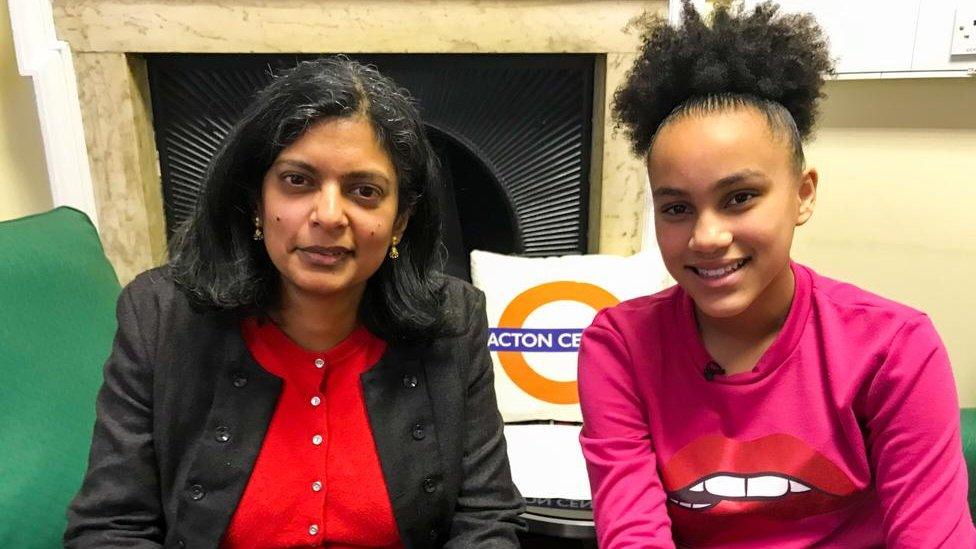
Rupa Huq (left) has been an MP since 2015
Rupa Huq was elected to represent the people of Ealing Central and Acton at the 2015 general election for the Labour Party.
She also told Lucia that the number of female MPs is "not good enough". She thinks that having more schools visiting parliament would make it more accessible.
Her party, the Labour Party, has never had a woman as leader of the party nor have they had a female prime minister: "It's possible Labour might have a woman leader and that person might go on to be prime minister."
She added: "Even if we don't get a woman prime minister we need to keep the prime minister, whoever they are, on their toes doing things for women."
Are things changing?
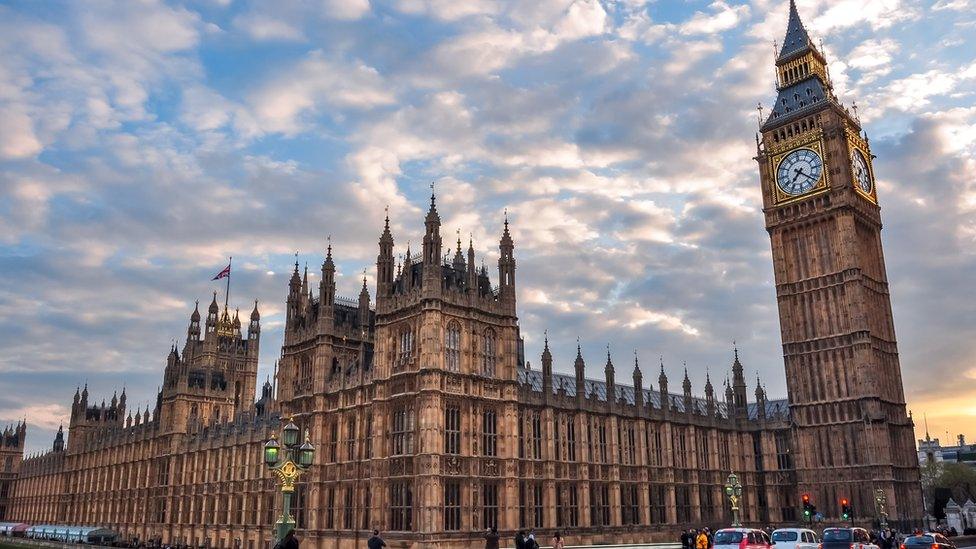
Members of Parliament vote on and pass laws in the Houses of Parliament
The group 50:50 Parliament has been encouraging more women to run with a special campaign called #AskHerToStand.
Frances Scott from 50:50 says: "Women should be able to play an equal part in running the country and planning the future."
Scotland, Northern Ireland and Wales have their own National Assemblies where representatives vote on some of the laws that affect those countries. Both Scotland and Northern Ireland have a female politician in the most important job: Nicola Sturgeon is the first minister of Scotland and Arlene Forster is the first minister of Northern Ireland.
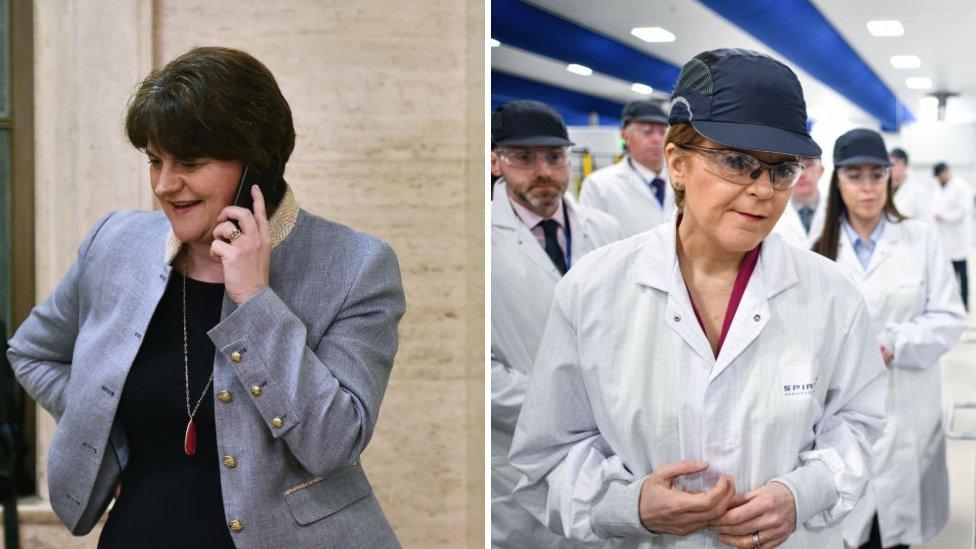
Arlene Foster (left) is the first minister of Northern Ireland and Nicola Sturgeon is the Scottish first minister (right)
The Labour Party and the Liberal Democrats have used all-women shortlists in some places - that means that only women are allowed to stand for election for them.
In the Conservative Party, former prime minister Theresa May formed campaign group Women2Win to encourage more women to stand to be MPs.
- Published8 March 2019
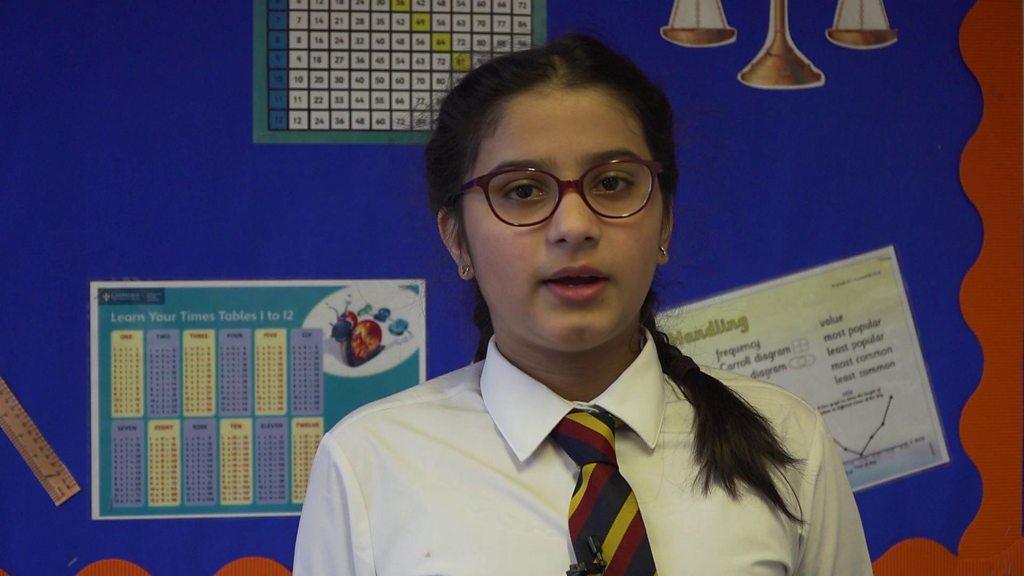
- Published8 March 2019
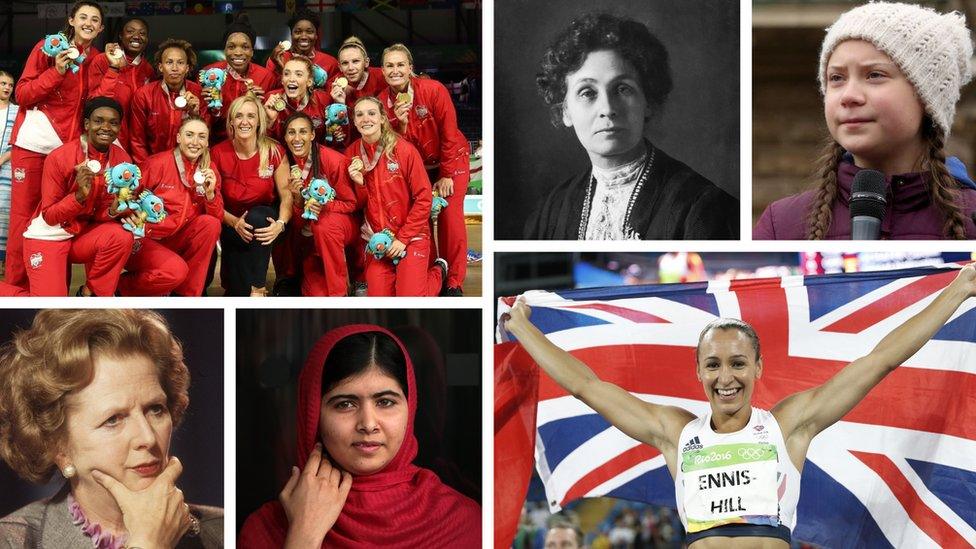
- Published8 March 2018
